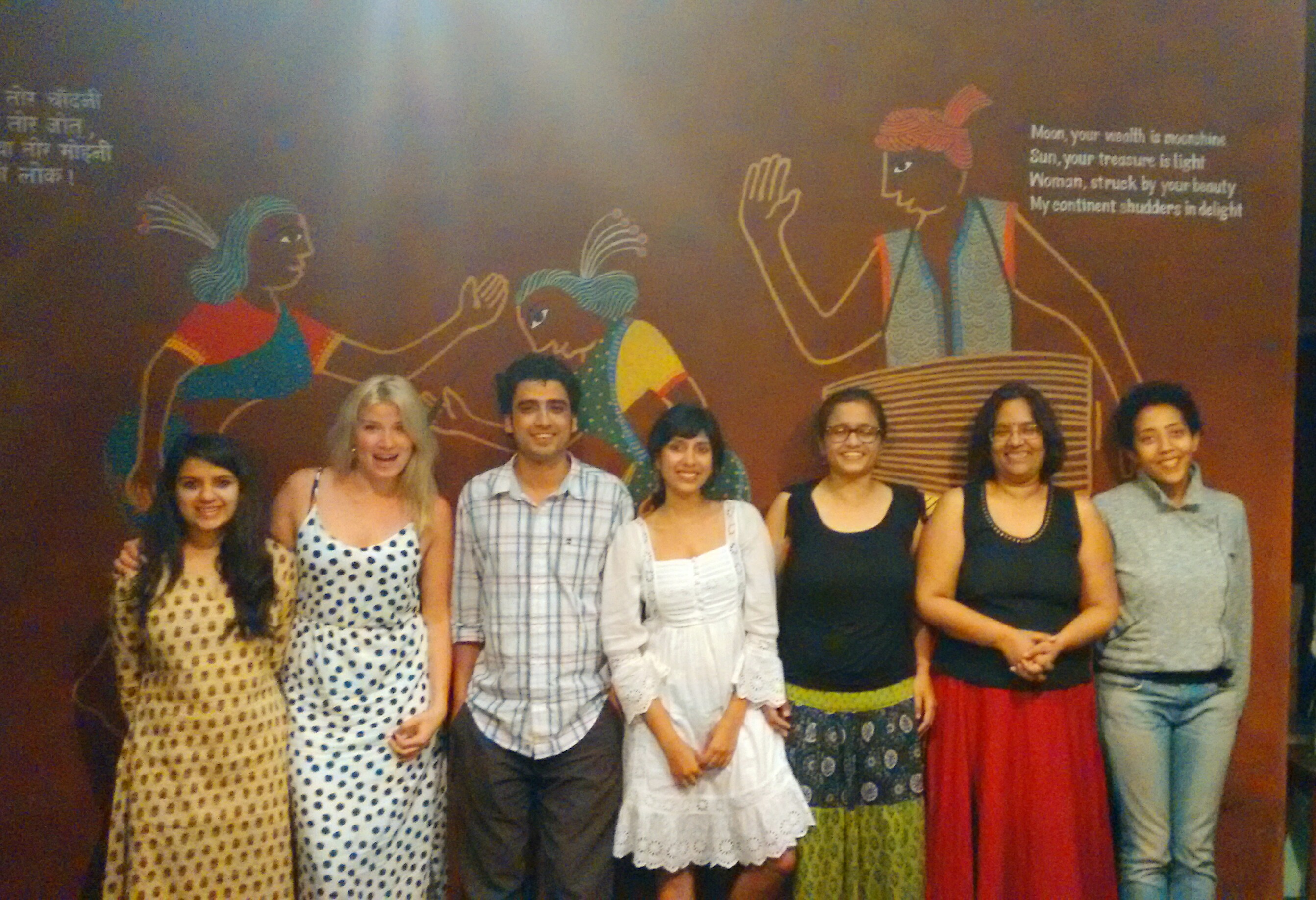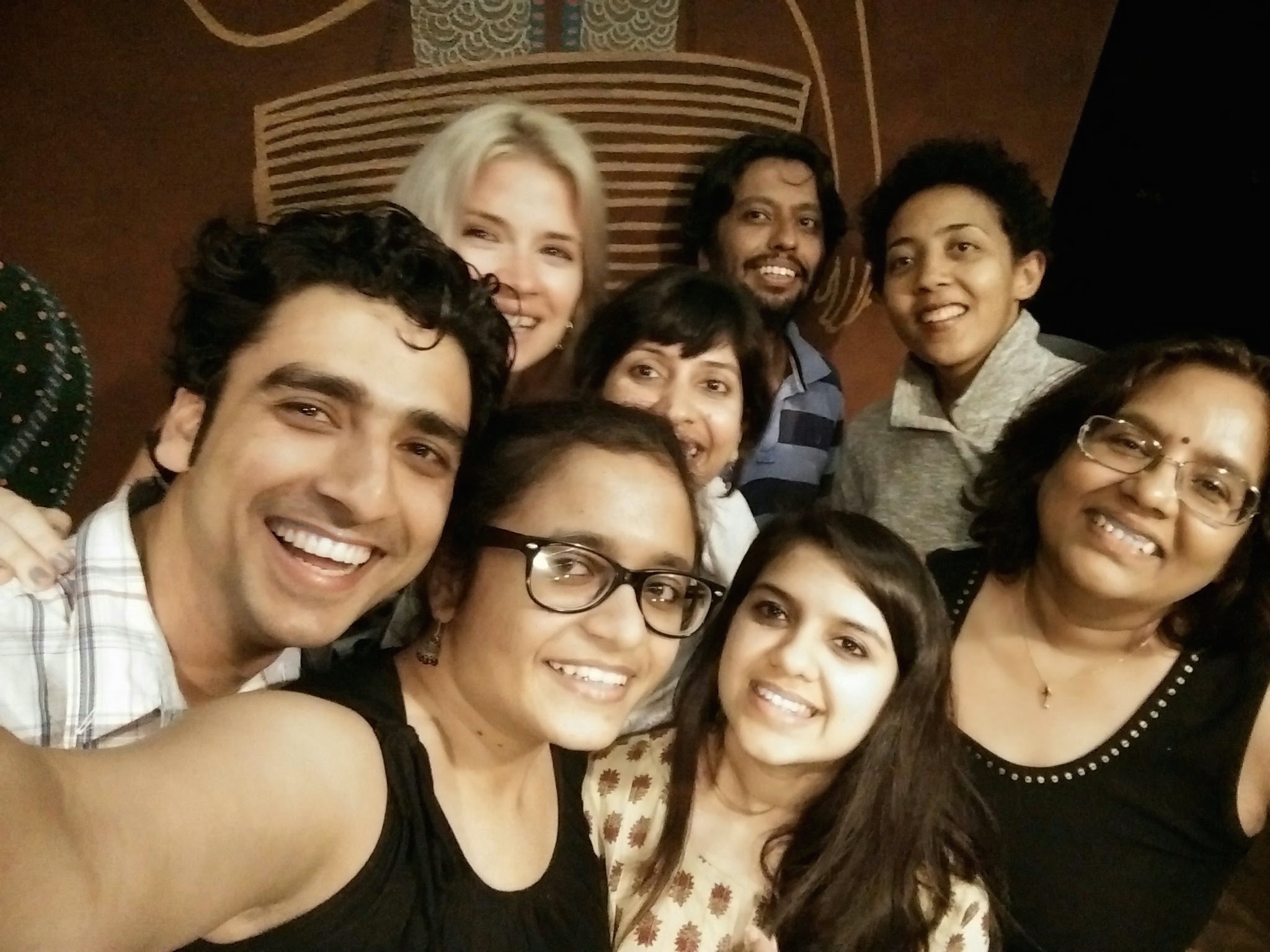Sangam House is an international writers’ residency programme that brings together writers, poets and translators from across the world to live and work in a supportive and nurturing space in Nrityagram – the “dance village” or gurukul for Indian Classical dances located outside the city of Bengaluru.
Started by Arshia Sattar and DW Gibson in 2008, the programme has attracted more than a hundred writers from all over the world, working in languages ranging from Tamil to Korean. The list of writers includes celebrated writers such as Perumal Murugan (who has been a fellow twice) and stellar translators like Lakshmi Holmström.
As Season seven (summer session) kicks off this May, residents at Sangam House started their creative journey at Nrityagram. The campus is ideal as it creates an unobtrusive environment conducive to reading, writing, thinking, or just gazing at the vast stretches of green all around and losing track of time. Conversations with fellow writers come at perfect intervals, as their ideas and stories keep you intellectually stimulated through the day.

There are seven of us at Sangam House this season, working on projects ranging from non-fiction and fiction to poetry and translations. As we bond over protecting our breakfast from crows, setting off on long morning walks into the neighbouring village of Hessaraghatta, or indulging the three beautiful dogs on campus, the day goes by quicker than we would like.

Dinner is an informal affair amongst the Kula residents (the residential unit called Kula is reserved for Sangam House writers), while lunch is served next to the dance rehearsal hall, which gives us an opportunity to interact with Nrityagram’s iconic dance teachers and students.

Mondays are the days we can really show off our culinary genius (or sheepishly hide in our rooms) as we have to prepare meals for ourselves. We’re expecting to sample some Kashmiri and Zambian dishes over the next few weeks. No pressure!
The most beautiful mornings are the ones when we get a chance to watch the Odissi dance students’ enthralling rehearsals in the dance hall. The perfection of art really lies at the heart of Nrityagram. And it all ties together beautifully when a group of writers derives inspiration from this space.

It only makes me wonder – why are we not creating more Sangam Houses in India?
The seven this season
Elizabeth Greenwood, who teaches in the undergraduate creative writing programme at Columbia University, is working on her first book of nonfiction on the subject of death fraud.
Feroz Rather, an MFA from California State University, is working on a book of stories about the war in Kashmir.
Mohini Gupta, an MA in Cultural Studies from SOAS, is translating Vikram Seth's poetry collection Beastly Tales From Here and There into Hindi.
Namwali Serpell, an associate professor at UC Berkeley, is revising a novel set in San Francisco and writing a novel set in Lusaka.
Pratyaksha, an award-winning Hindi writer, is working on an anthology of risqué and erotic stories, as well as a novel about journeys to places which exist only in memory.
Priyanka Dubey, an independent journalist, is working on her first non-fiction book on rape in India.
Snigdha Poonam, a freelance writer and journalist, is working on a book about the new Indian small town life.

Started by Arshia Sattar and DW Gibson in 2008, the programme has attracted more than a hundred writers from all over the world, working in languages ranging from Tamil to Korean. The list of writers includes celebrated writers such as Perumal Murugan (who has been a fellow twice) and stellar translators like Lakshmi Holmström.
As Season seven (summer session) kicks off this May, residents at Sangam House started their creative journey at Nrityagram. The campus is ideal as it creates an unobtrusive environment conducive to reading, writing, thinking, or just gazing at the vast stretches of green all around and losing track of time. Conversations with fellow writers come at perfect intervals, as their ideas and stories keep you intellectually stimulated through the day.

There are seven of us at Sangam House this season, working on projects ranging from non-fiction and fiction to poetry and translations. As we bond over protecting our breakfast from crows, setting off on long morning walks into the neighbouring village of Hessaraghatta, or indulging the three beautiful dogs on campus, the day goes by quicker than we would like.

Dinner is an informal affair amongst the Kula residents (the residential unit called Kula is reserved for Sangam House writers), while lunch is served next to the dance rehearsal hall, which gives us an opportunity to interact with Nrityagram’s iconic dance teachers and students.

Mondays are the days we can really show off our culinary genius (or sheepishly hide in our rooms) as we have to prepare meals for ourselves. We’re expecting to sample some Kashmiri and Zambian dishes over the next few weeks. No pressure!
The most beautiful mornings are the ones when we get a chance to watch the Odissi dance students’ enthralling rehearsals in the dance hall. The perfection of art really lies at the heart of Nrityagram. And it all ties together beautifully when a group of writers derives inspiration from this space.

It only makes me wonder – why are we not creating more Sangam Houses in India?
The seven this season
Elizabeth Greenwood, who teaches in the undergraduate creative writing programme at Columbia University, is working on her first book of nonfiction on the subject of death fraud.
Feroz Rather, an MFA from California State University, is working on a book of stories about the war in Kashmir.
Mohini Gupta, an MA in Cultural Studies from SOAS, is translating Vikram Seth's poetry collection Beastly Tales From Here and There into Hindi.
Namwali Serpell, an associate professor at UC Berkeley, is revising a novel set in San Francisco and writing a novel set in Lusaka.
Pratyaksha, an award-winning Hindi writer, is working on an anthology of risqué and erotic stories, as well as a novel about journeys to places which exist only in memory.
Priyanka Dubey, an independent journalist, is working on her first non-fiction book on rape in India.
Snigdha Poonam, a freelance writer and journalist, is working on a book about the new Indian small town life.

Limited-time offer: Big stories, small price. Keep independent media alive. Become a Scroll member today!
Our journalism is for everyone. But you can get special privileges by buying an annual Scroll Membership. Sign up today!